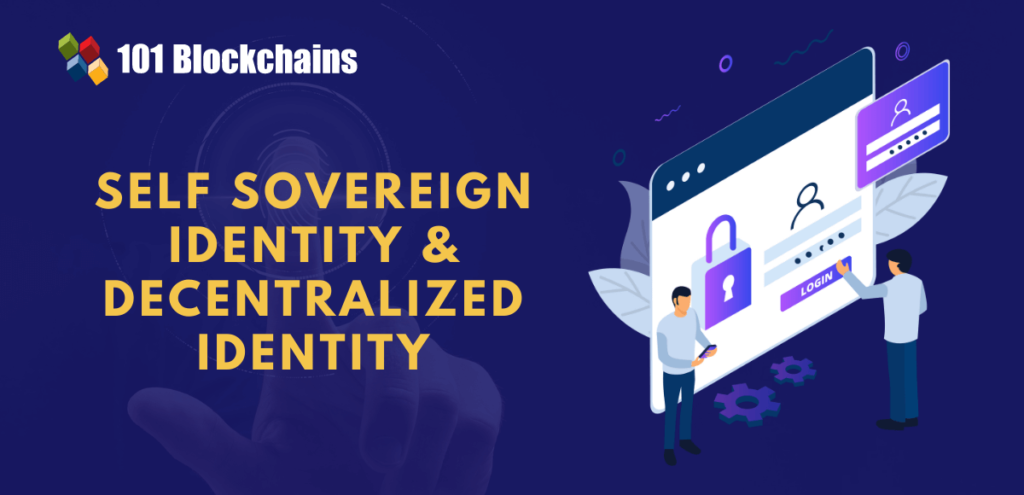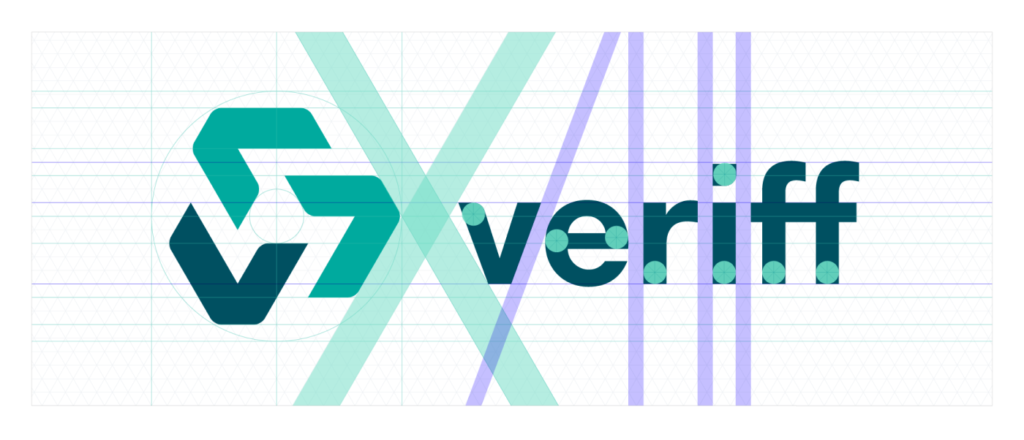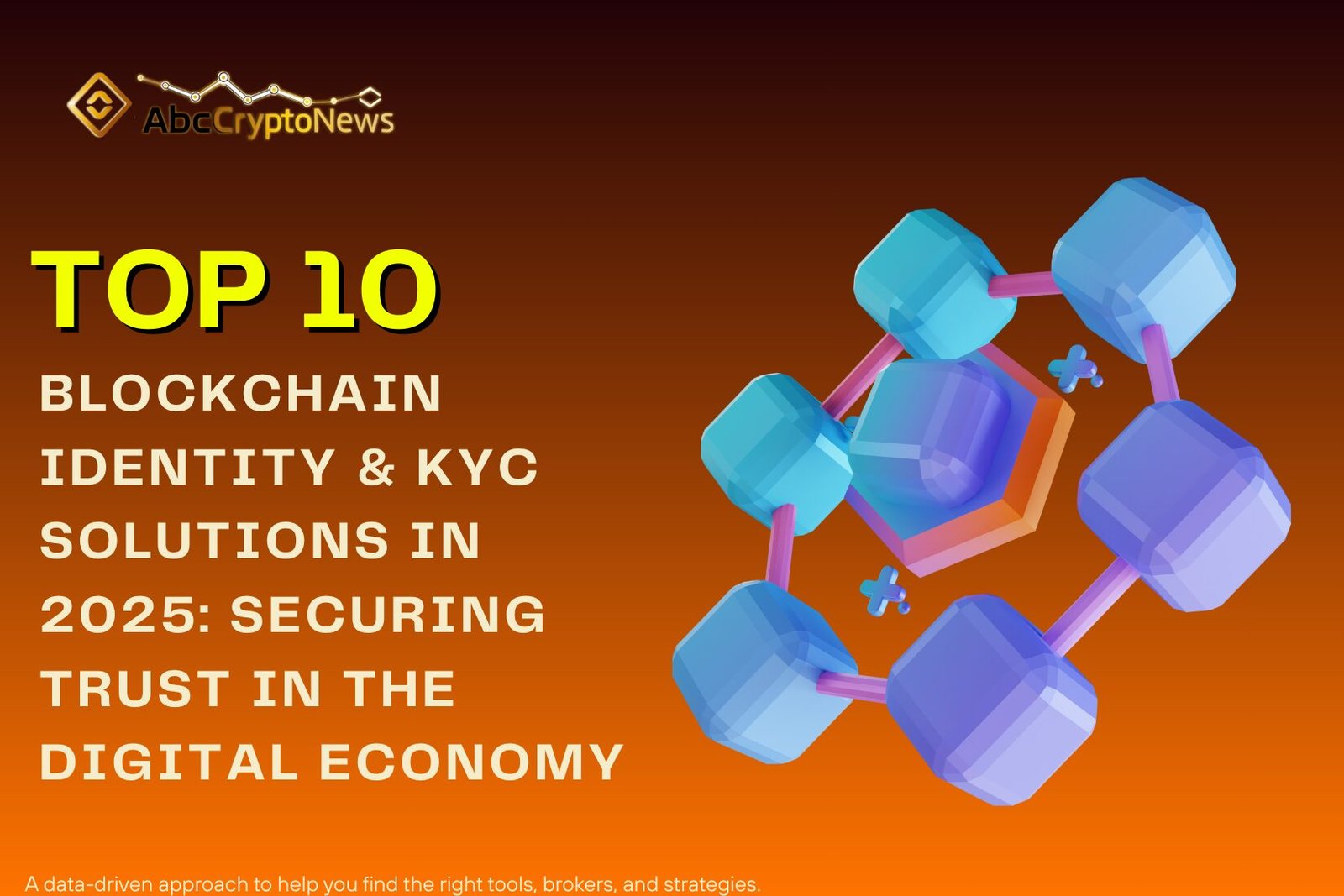Top 10 Blockchain Identity & KYC Solutions in 2025: Securing Trust in the Digital Economy
Top 10 Blockchain Identity : Digital identity has become the backbone of our financial and online lives. With every login, transaction, or onboarding process, identity verification and Know Your Customer (KYC) checks are now inseparable from how businesses build trust. Yet, the challenges are growing: fraud rings exploit loopholes, data breaches expose millions of records, and regulators tighten anti-money laundering (AML) and counter-terrorist financing (CFT) requirements.
This is where blockchain-based identity and KYC solutions are stepping up. By combining transparency with immutability, they promise stronger security, faster onboarding, and globally interoperable systems. In this article, we take a closer look at the Top 10 Blockchain Identity & KYC Solutions in 2025, platforms that are quietly shaping how financial institutions, fintech startups, and Web3 projects verify and protect their users.
Top 10 Blockchain Identity : Why Blockchain Identity & KYC Solutions Matter in 2025
The year 2025 feels like a turning point. Regulatory frameworks are stricter than ever—FATF guidelines, GDPR in Europe, and updates to AMLD5/6 leave no room for outdated KYC practices. Banks and fintechs are under pressure to keep pace, while crypto exchanges and DeFi protocols face heightened scrutiny for compliance and fraud prevention.
At the same time, consumers demand convenience. No one wants to upload the same documents a dozen times. Blockchain identity systems offer a way forward: one verified identity can be shared across platforms, removing duplication and speeding up access. For businesses, this means fewer costs, higher trust, and smoother onboarding experiences.
Key Evaluation Criteria – Top 10 Blockchain Identity
When selecting identity solutions, businesses don’t just look at buzzwords. They evaluate platforms through real-world needs:
- Security & Compliance: Alignment with FATF, GDPR, and global AML rules.
- Technology Integration: How blockchain interacts with AI, biometrics, and machine learning.
- Scalability & Speed: The ability to handle millions of verifications without bottlenecks.
- Global Reach: Localized compliance across multiple jurisdictions.
- Cost-Effectiveness: Practical models that suit startups as well as multinationals.
- Client Adoption: Whether it’s already trusted by banks, governments, or crypto leaders.
These factors shape our list of the leading blockchain KYC providers.
Civic: Privacy-Focused Decentralized Identity
Civic has been in the identity game for years, and in 2025 it continues to push forward with decentralized identity management. Civic allows users to control their personal information and share only what’s necessary. For example, instead of handing over a full passport scan, Civic can confirm that you are over 18 without revealing the rest.
Its strength lies in privacy-first principles and blockchain-based verification. Crypto exchanges, Web3 applications, and decentralized finance protocols often turn to Civic for lightweight but reliable user verification.
Serto: Self-Sovereign Identity for Web3

Source: 101Blockchain
Formerly part of ConsenSys Mesh, Serto has evolved into one of the strongest players in the self-sovereign identity (SSI) space. It focuses on interoperable protocols, enabling credentials to move across different blockchain ecosystems seamlessly.
For enterprises building in Web3, this solves a big headache: user identity that works across platforms without duplicating checks. Serto also emphasizes decentralized verification, making it attractive for businesses wary of centralized data silos.
Sovrin Foundation: A Public Utility for Identity

Source: CoinDesk
Unlike private providers, the Sovrin Foundation positions itself as a global public utility for identity. With a governance structure rooted in community and open-source standards, Sovrin offers infrastructure for verifiable credentials that can be used by governments, NGOs, and enterprises.
Its goal is ambitious: create a layer of trust for the internet itself. In practice, Sovrin supports interoperable decentralized identities that could power future e-government services, humanitarian aid distribution, and cross-border compliance.
Sanction Scanner: Compliance at the Core
Fraud prevention is only half the battle; compliance is the other. Sanction Scanner specializes in real-time screening of global watchlists, sanctions, and politically exposed persons (PEP) databases. It integrates smoothly with blockchain KYC systems, providing businesses with the tools to stay compliant in multiple jurisdictions.
Banks, payment providers, and crypto businesses use it for both KYC and AML monitoring, reducing the risk of regulatory penalties. Its niche focus makes it an essential part of the compliance toolkit in 2025.
Trulioo: The Global Reach Leader

Source: Trulioo
If scale matters, Trulioo sets the benchmark. With access to over 400 data sources in 195 countries, it offers biometric verification and global compliance coverage. Multinational fintech companies often choose Trulioo because it allows them to expand into new markets without rebuilding their KYC infrastructure from scratch.
In a world where cross-border transactions are routine, Trulioo’s ability to deliver localized compliance at scale makes it one of the most recognized blockchain identity providers.
Jumio: AI Meets Blockchain KYC

Source: PRH
Jumio blends artificial intelligence, biometrics, and blockchain into its KYC solutions. Known for its smooth user experience, it helps organizations reduce fraud while keeping onboarding friction low. Industries ranging from banking and healthcare to gaming rely on Jumio for AI-powered verification and AML monitoring.
By embedding machine learning into blockchain-backed identity, Jumio ensures both speed and adaptability—a valuable combination in fast-moving digital markets.
Ondato: Compliance Automation for SMEs

Source: financial IT
While many KYC providers focus on large-scale institutions, Ondato brings automation and accessibility to small and medium-sized enterprises. Its toolkit includes video-based ID verification, e-signatures, and dynamic risk scoring.
In 2025, Ondato’s appeal lies in its all-in-one compliance automation, offering SMEs the same sophistication that larger banks enjoy—without the heavy cost or complexity.
Veriff: AI-Driven Identity Checks

Source: daviferent
Estonian-born Veriff has expanded globally with its AI-driven fraud prevention and identity verification platform. It works with financial institutions, online platforms, and crypto exchanges to handle large volumes of verifications while staying aligned with international regulations.
Veriff’s edge is adaptability: its systems detect subtle fraud patterns while still offering a fast customer experience. This balance makes it a go-to choice for businesses scaling across regions.
Shufti Pro: Multilingual, Global Verification
Operating across more than 230 countries and territories, Shufti Pro prides itself on being a global end-to-end KYC provider. With multilingual support and biometric checks, it helps multinational corporations and digital banks onboard users efficiently.
Its wide coverage makes it particularly useful for e-commerce platforms and cross-border service providers, where customer bases are diverse and compliance needs vary dramatically.
Sumsub: Orchestrating KYC Workflows

Source: Sumsub
Sumsub approaches the problem differently—by acting as an orchestration platform for KYC, AML, and fraud prevention. It allows businesses to customize verification flows, adapting to regional regulations without losing efficiency.
Popular among fintechs, iGaming, and crypto platforms, Sumsub’s strength lies in flexible workflows and regulatory adaptability. It acts like a command center for compliance, giving institutions better control over risk.
Comparative Table – Top 10 Blockchain Identity
| Company | Key Focus | Strengths | Primary Use Cases |
|---|---|---|---|
| Civic | Decentralized Identity | User privacy, blockchain | Web3, Crypto |
| Serto | SSI & Verification | Interoperable protocols | Web3, Enterprise |
| Sovrin | Decentralized ID Infra | Open-source, governance | Governments, NGOs |
| Sanction Scanner | AML/KYC Compliance | Real-time sanction checks | Banks, Fintechs |
| Trulioo | Global Verification | 400+ data sources worldwide | Multinational Fintechs |
| Jumio | AI-Powered KYC | Biometrics, fraud detection | Finance, Healthcare, Gaming |
| Ondato | Compliance Automation | Risk scoring, video ID | SMEs, Financial Institutions |
| Veriff | AI Identity Checks | Fraud prevention, AML compliance | Banks, Crypto Exchanges |
| Shufti Pro | Global KYC/AML | Multilingual, biometric authentication | E-commerce, MNCs |
| Sumsub | Orchestration Platform | Flexible workflows, adaptability | Fintechs, iGaming, Crypto |
Top 10 Blockchain Identity : Future Trends in Blockchain Identity & KYC (2025 and Beyond)
Looking ahead, several themes stand out. Self-sovereign identity (SSI) is gaining traction, especially in Web3 environments where users want to control their data. AI will continue to merge with blockchain, creating smarter fraud detection systems. Biometrics will expand in mobile-first markets, making verification seamless.
Governments are also beginning to collaborate with blockchain KYC providers to build national electronic ID systems. As central bank digital currencies (CBDCs) and global payment networks mature, interoperability between KYC systems will be critical.
Conclusion – Top 10 Blockchain Identity
The Top 10 Blockchain Identity & KYC Solutions in 2025 show the wide spectrum of approaches to digital trust. Some, like Civic and Sovrin, prioritize decentralization and user sovereignty. Others, like Trulioo and Sanction Scanner, emphasize compliance and global reach. Platforms like Jumio and Sumsub strike a balance with AI-driven adaptability.
What unites them is a shared mission: securing trust in an increasingly digital world. As regulations tighten and online interactions multiply, blockchain-powered KYC isn’t just a convenience—it’s becoming the backbone of secure onboarding across industries.




